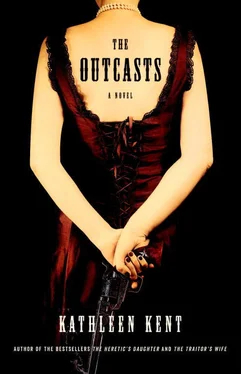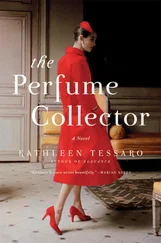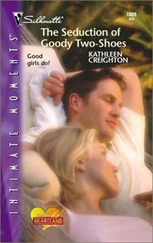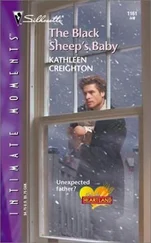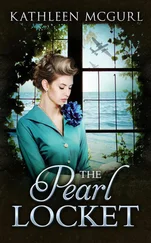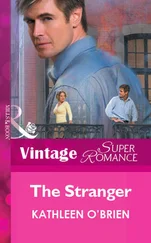After a bit, Dr. Tom called, “Nate. Come help me lift old Maynard here up onto the mule.”
Nate wiped the sweat off his face with one sleeve, stooped down, heaved Maynard up by himself, and carried him to the mule. He draped the body over the withers, facedown, and secured it with the long ends of the rope.
He mounted his own horse and began leading the mule southwards, back to town. He did not wait for the other two men to trail directly after. He did wonder, though, and often, in the days following, whether he should have pressed Deerling more about what Maynard’s other choice had been.
The coach arrived in Hearne at eleven that morning, having been on the road for over two days, changing horses and drivers every forty or fifty miles and discharging passengers in the late afternoons to whatever overnight lodging they could find and pay for.
Grateful for the few hours before the train was scheduled to depart for Houston, Lucinda walked up and down the main street, carrying her carpetbag close to her body, wandering in and out of the open shops, their shelves filled with goods carted in from San Francisco and Boston. She lingered over some dressmaking cloth and finally bought a jar of gooseberry jam, thinking to eat it all in one sitting. She felt well and strong; hopeful, now that the journey was almost done.
During the first night, there had been a moment when a sudden headache had spawned worries of a coming fit, but a few drops of laudanum judiciously taken in water had given her sleep, and the head pains were gone in the morning.
There seemed to be as much street traffic here as in Fort Worth, with an abundance of men who looked more like merchants than farmers or stock handlers and who had uncallused hands and fresh-creased pants. The men tipped their hats and smiled through their beards at her. She nodded in return, her mind reflexively reducing the distasteful but necessary acts of her profession to the more comfortable rules of mathematics, geometry in particular. Where two bodies in motion, with their collective points, curves, segments, and surfaces, intersecting in the horizontal and the vertical, from above and from below, could be reduced to the abstract. It was a trick she had cultivated as a child when committed to an asylum. Her mind quickly grasped the theorems and concepts and could then distance itself from the terrifying experiences of ice-water baths, forced feedings, and painful restraints by reducing the nurses, doctors, and other inmates to mere points in space.
She had come to stand in front of the plate-glass window of a grain store and paused to study her reflection: a woman in a plain cotton dress and a paisley shawl drawn modestly over her shoulders. A man soon came to stand next to her. She sensed him watching her reflection, waiting for her to smile, to turn her head and speak. Instead she stepped away and walked to a hotel set back from the train station.
She took a room, paying for hot water to be brought for a bath. Soon a large tin washtub was brought in by a gaunt, harried woman, along with just enough scalding water to fill it a quarter of the way. The woman then brought a bucket of well water, a chip of soap, and a cloth for drying. She admonished Lucinda not to overturn the bucket and left in a huff when Lucinda asked for more hot water.
Lucinda removed her clothes and sat waist-deep in the water, her legs drawn up almost to her chin. It was not in any true form a bathtub, and yet the heat on her skin was the most pleasure she had had in weeks. Wrapping her arms around her shinbones, she rested her head on her knees and breathed deeply as though sleeping.
She thought of the letter, and of the letter writer, telling her to come to the Lamplighter Hotel in Houston. She thought of his hands as he wrote the letter, the fingers slender and tapered with beautiful nails like a woman’s, and of the long lean bones of his thighs, the hollow of his throat, the jutting ridge of the collarbone.
He had first come to her during her time at Mrs. Landry’s, setting his coins in two neat stacks on the dresser. They had lain together twice with hardly a word spoken apart from the erupting sounds of release and polite good-byes. He was clean, restrained, mannerly.
But on his third visit, a violent fit had overtaken her as she began to undress, and, panting and jerking, she begged him to leave. The few men who had previously witnessed the onset of symptoms had scrabbled for the door as though she had called out, Typhoid. But he carried her to the bed and laid her down, stripped her until she was fully naked. He lay on top of her, still wearing his trousers and jacket, holding her thrashing head cupped tightly between his palms. He brought his face close to hers and tracked her eyes with his own.
He asked, “Are you dying?” His breath was over her grimacing mouth, and she believed that she was. His palms pressed more tightly into her temples to stop the spasms, and he asked her again if she was dying. She was in the full measure of her sickness, with no control of any part of her body other than the erratic pumping of air in and out of her lungs. His weight had become unbearable, even with the bucking movement of her body, but when she closed her eyes, he pried the lids open with his thumbs, saying, “Look at me.”
He smiled, his lips parted with a kind of wondrous expectation, as though he had come to peer into a small pit but instead found a fissure of unknowable depth. He spoke to her, saying, “Here, here,” not the calling of a parent to a wandering child but a demand for her to keep her eyes open and focused on his.
That she would die from her malady, Lucinda had no doubt. Uncontrollably pitched from a landing, or stairs, or even from her own bed, she would one day strike and crack her skull. Perhaps she would lie in the bottom of a bathtub, flailing and twitching, like some boneless sea creature, slowly drowning in terrified helplessness.
But as he pressed himself over her, the dark irises of his eyes inches from hers, she began to feel a retreat from fear, a blankness of soul. She never fully lost consciousness and was keenly aware of the skin of her belly incised with the sharp edges of his belt, the buttons of his coat imprinted on her ribs and breast.
The entirety of her life up to that moment had been a torment, a restlessness of mind, as though her brain were a frightened, overly large fish inside a brittle bowl. His near-ecstatic study of her eyes dancing on the edge of nothingness had in the instant changed that balance, rendering her mind becalmed and her body agitating for even a careless, wounding touch.
When she had quieted, he undressed and lay back on the bed, then ran his nose along her skin as though sniffing out the source of the illness. Then he touched her for a length of time and brought her to another kind of shuddering.
A sudden, hard knock at the door signaled the hotel woman’s return with the hot water, and Lucinda called her in. The woman closed the door behind her and walked farther into the room before she realized that Lucinda was naked in the bath. She drew herself up short, quickly turning her head away in embarrassment, her face pinched and disapproving. Lucinda asked her to bring the bucket closer, and, as the woman drew near, Lucinda, smiling sweetly, let her knees draw apart to the sides of the basin, showing through the shallow water the private hair between her legs. Dropping the bucket onto the floor, the woman fled the room.
Lucinda finished her bath and dressed in the clean, heavier woolen dress from her bag. She would buy more dresses in Houston and so left the soiled cotton dress behind in the room. Before leaving, she spoke with the hotel clerk, an aging man with inflamed red eyes, and asked him about the dangers of riding the ferry to Galveston. If the German happened to find his way this far south, there was no harm in pointing the trail away from her true destination.
Читать дальше
